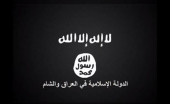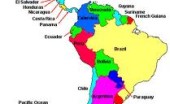Johannah Bernstein post: "eternally proud of my father’s extraordinary aeronautical engineering. legacy. here is a photo of the Canadair Water…
Wednesday Night #1759
Written by Diana Thebaud Nicholson // November 18, 2015 // Wednesday Nights // 1 Comment
There is no other topic – like Rome, all roads lead to Daesh, including coverage of the array of long-scheduled international meetings (G20, APEC summits’ economic goals overshadowed by Paris attacks) and PM Trudeau’s début on the international stage. The latter appears to have been quite successful so far and in the case of China, his father’s openness to that nation (pre-Nixon) has helped to smooth initial meetings with President Xi Jinping.
The world has changed since last Friday. The downing of the Russian aircraft with a far greater loss of life didn’t do it – although the proof of terrorist activity has lit a fire under Mr. Putin. Neither have any of the other attacks in 2015, nor the well-publicized atrocities (the Jordanian pilot burned to death, the execution of Khaled al-Asaad, the drowning of the caged ‘spies’) – not even Charlie Hebdo. We are swamped with a huge range of opinions, pontifications, and updates that often do not tell us much.
The ugly backlash against acceptance of Syrian refugees, stoked by the story that one of the Paris attackers was carrying a Syrian passport , is rapidly spreading from Europe to the U.S. and Canada and will only facilitate recruitment among the hopeless (The Racist Backlash to the Paris Attacks Is Helping the Islamic State), In the concluding paragraphs of Why Syrian refugee passport found at Paris attack scene must be treated with caution there are excellent recommendations to create an organised system of mass-resettlement from the Middle East itself. This echoes an earlier article by the UN’s François Crépeau on the refugee crisis: ‘Instead of resisting migration, let’s organise it’.
One of the few things that most commentators can agree on is that the West has largely failed to comprehend the high degree of sophistication of the Daesh leadership. As Scott Atran points out in his opinion piece in The Guardian (whose coverage has been outstandingly thorough), Mindless terrorists? The truth about Isis is much worse, “the chaotic scenes on the streets of Paris and the fearful reaction those attacks provoked are precisely what Isis planned and prayed for. The greater the reaction against Muslims in Europe and the deeper the west becomes involved in military action in the Middle East, the happier Isis leaders will be. Because this is about the organisation’s key strategy: finding, creating and managing chaos.” The Security Panel on Tuesday night’s National also had good observations – we especially liked the parallels drawn with a modern international corporation.
This lends further credibility to the theme of the Esquire piece There Is Only One Way to Defeat ISIS — We must hold accountable our Middle Eastern “allies”—the states and bankers and political elites—who persist in funding mass murder.
Good news is that the hacker group Anonymous has declared cyberwar on Daesh: “Make no mistake: #Anonymous is at war with #Daesh. We won’t stop opposing #IslamicState. We’re also better hackers. #OpISIS”
The article I was held hostage by Isis. They fear our unity more than our airstrikes underscores that retaliation is just what the Daesh leadership seeks, however, the Russians are already looking for vengeance, and France launched fresh strikes on Isis as Pentagon chief calls for global coalition — Ash Carter, the US defence secretary, echoes François Hollande by urging European allies to join forces to defeat the terrorist group
Stratfor poses some good questions
Cutting past any hysteria or hyperbole, it is clear that the Nov. 13 attacks have brought to a head the conversation on a number of difficult, overlapping questions facing both Europe and the Middle East, including:
- How might European states shift their stance toward the influx of migrants and refugees coming from war zones in the Middle East?
- Are the capabilities of the Islamic State truly expanding, as recent claims suggest? What are its actual strengths and weaknesses?
- What options does Paris have in responding to the Nov. 13 attacks? As France steps up the tempo of airstrikes in Syria, will the Vienna talks on Syria’s conflict be radically reshaped?
- What does the future hold for the Schengen Agreement – and would its unraveling lead the European Union itself closer to dissolution?
While VICE runs an interview with a Stratfor military analyst Omar Lamrani What Would It Take to Destroy the Islamic State?
And now for a real cheerer-upper:
Worst-case scenarios that are more likely than you think
By Jane Harman, the ranking Democrat on the House intelligence committee from 2002 to 2006, and now president and chief executive of the Woodrow Wilson International Center for Scholars
Consider: Al Qaeda is still fixated on blowing up airplanes, a dream that may have just played out in the Sinai. But other risks include loose nukes in Pakistan, three-stage rockets in North Korea that can hit the United States, radiological weapons on the Russian black market and the possibility that terrorists with a demonstrated interest in biological warfare will make use of the next major infectious disease outbreak to turn human beings into weapons.
All these threats are getting worse. All might do even more damage, near-term, than Iran.
or, if you prefer, Ted Koppel with Charlie Rose on Lights Out
The ABC News veteran who’s won every significant TV award (including 42 Emmys) tells us that a major cyber attack on America’s power grid is not only possible, but likely. Such an attack would be devastating—potentially leaving us without power for weeks or months. Scarier still is his revelation that the US is shockingly unprepared: the Department of Homeland Security has no plan for handling the aftermath of an attack.
Some Wednesday Nighters remain highly skeptical that climate change is indeed a major concern for the world’s future. It’s probably not possible to change their minds, but we do keep trying Climate change drives political instability: CIA director — Kimberly Flowers, the director of the food security project of the Center for Strategic and International Studies, is the author of “Food Insecurity, Conflict and Stability,” released Sunday in the Center’s 2016 Global Forecast.
“In 2016, regions within the Middle East and sub-Saharan Africa will be most sensitive to food insecurity and several countries are likely to suffer political unrest and costly humanitarian crises because of their inability to meet their populations’ basic food demands.” She calls Syria the biggest humanitarian crises of this generation, and notes nearly 10 million Syrians are presently unable to meet their daily food needs.
This has been a frequent Wednesday Night topic, often led by Cleo, for many years.
Just in time for Christmas season travel, you will be happy to learn that the Airlines are piling on new fees and experts say even more charges lie ahead – seems that the only things that are keeping our national carrier aloft and solvent are fees for checked baggage and little niceties like a pillow or blanket.
Ending on a light-hearted note that brings us back to the beginning – this video of security breach at the g20 should entertain:
Looking forward to seeing you, and hoping you will bring solutions to all the world’s problems.




One Comment on "Wednesday Night #1759"
Terry Jones makes some good points.
Hope that your refugee screeners are careful and not predisposed to being “kind”
Decades ago I passed onto the Canadian consular head in Brussels information about fraudulent Haitian passports (probably used for trafficking and drugs) and was assured that all their Haitians were good cases. During the years we were in Canada, I noted very lax screening of refugees for diseases (particularly TB) since Margaret (then 15) who was totally TB clear departing the US, returned to a positive test on home leave 2 years later. I immediately alerted the school – as she had only contact with her giftie classmates and was totally ignored. I ended up asking Margaret to tell all her friends to get tested for their safety. She had to be put on a anti TB regimen for six months.
In contrast , Arlington county found 1 positive TB test among its students a few years ago and promptly retested everyone and found the employee who was the source and who was immediately tested.
I am only familiar with our refugee screening process, done by US immigration and they do try to be rigorous and careful — as best as they can.
I don’t know how it’s done in Canada and hopefully, you don’t have the kindly, innocent, pro-refugee-by-definition people solely in charge of the screening of refugees–especially with the time pressures they face. Perhaps, your refugee screening people can assure the public.
Best of luck. Terry